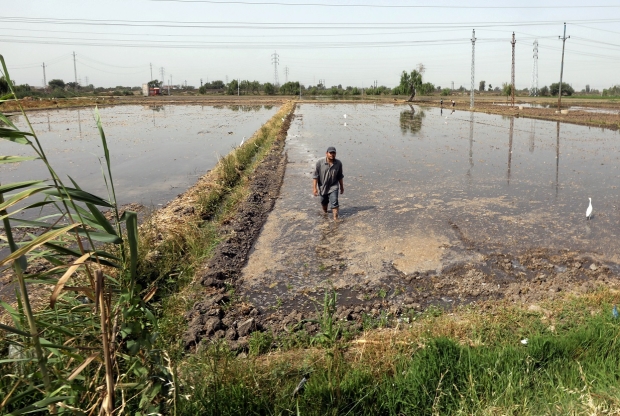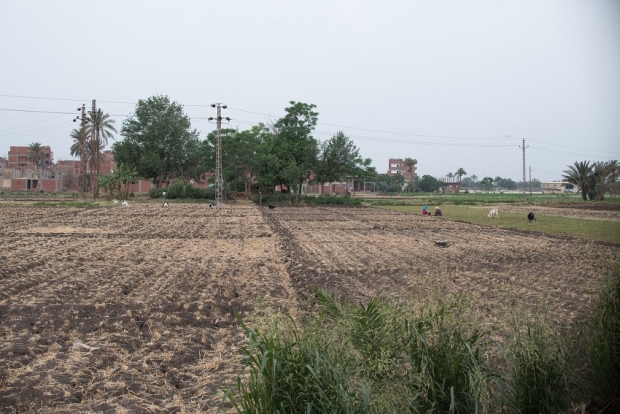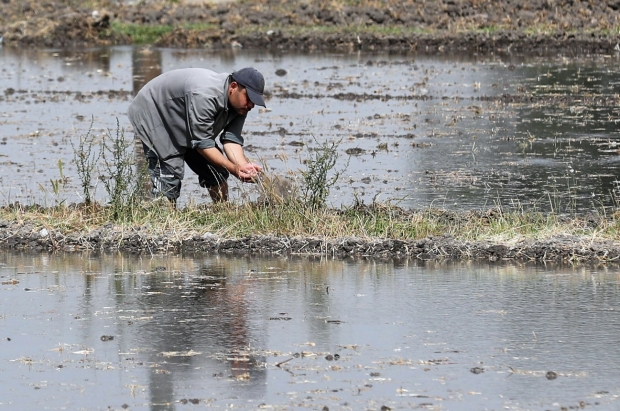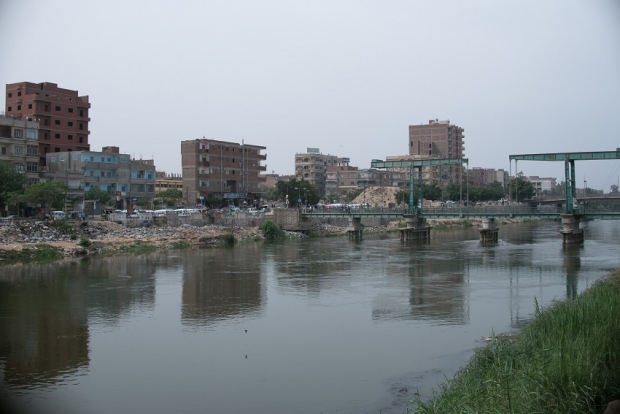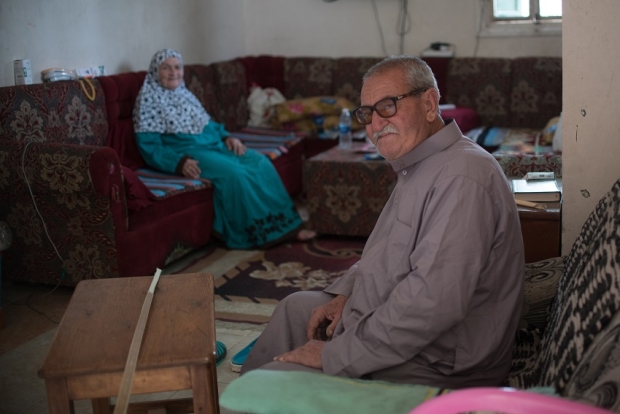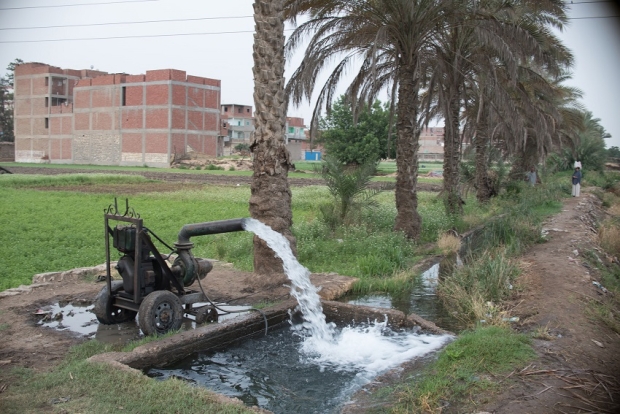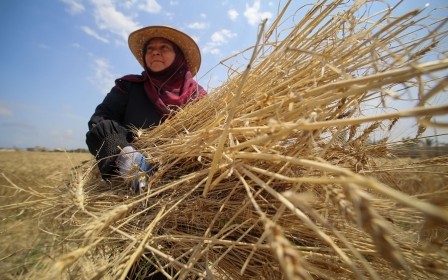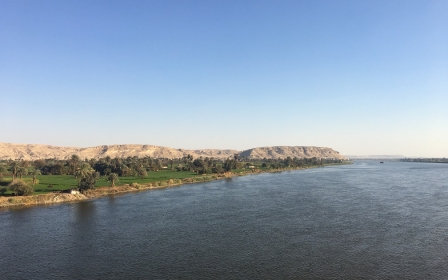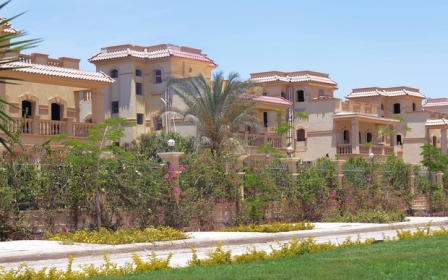Let them eat quinoa: Egypt's farmers crushed by rice restrictions
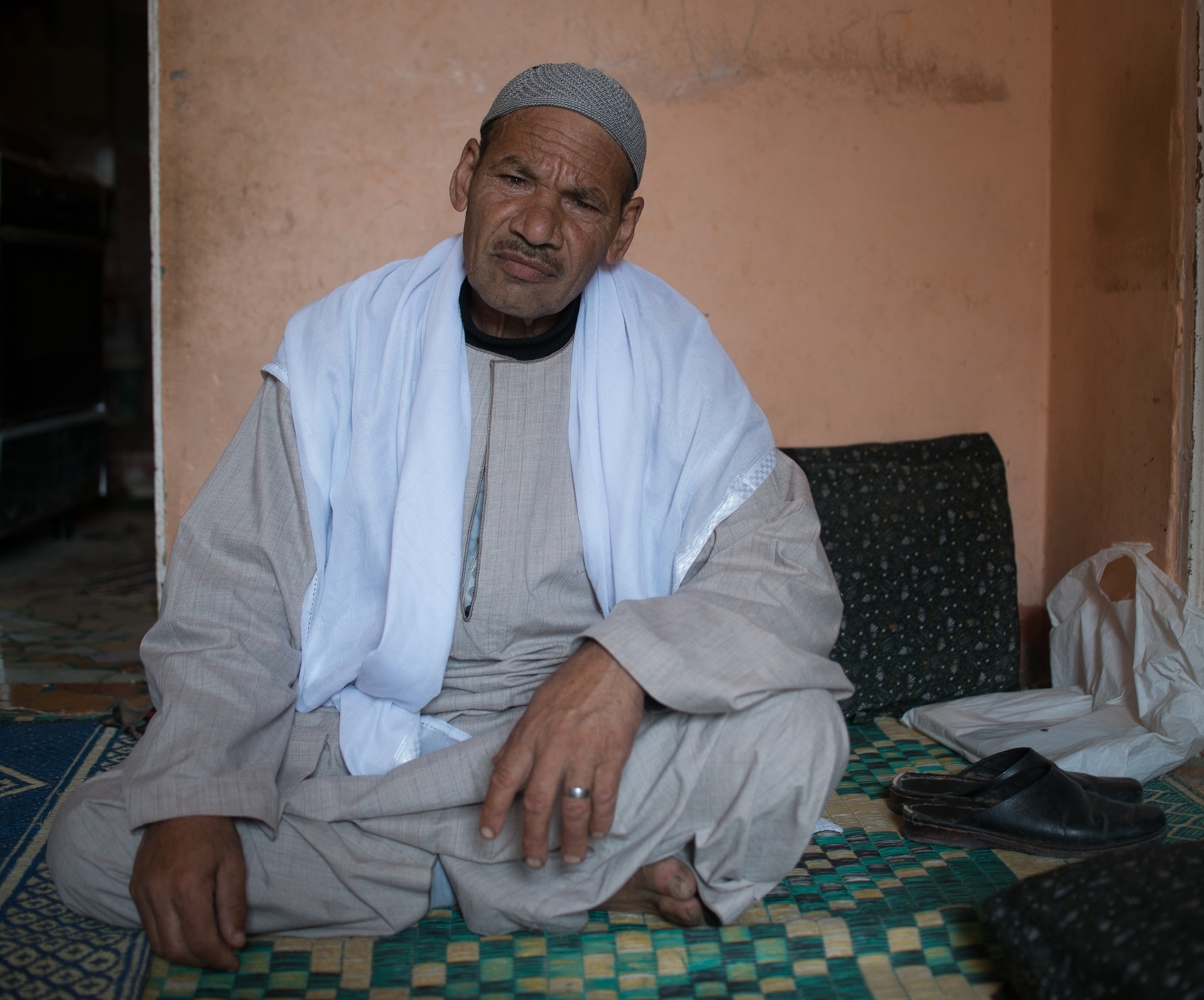
SHARQIA, Egypt - In the small village of Amrit in the Egyptian Nile delta governorate of Sharqia, Sabah is walking through her family’s half acre of land, collecting the last of this year’s onion harvest with her two grandchildren in tow.
In the spring, rice fields usually line both sides of the Ismailia Agricultural road, leading up to the northern Sharqia governorate.
It really breaks my heart to see so much uncultivated land
- Mohamed, farmer
Men and women carry the remains of wheat, onion and berseem crops on their backs, along with the burden of the uncertainty that comes with an upcoming season without rice.
On their terrain, Sabah and her family have planted corn on part of the land and have left the rest of the field - where the rice used to grow - empty “in case [the government] changes its mind or finds a solution”.
“It really breaks my heart to see so much uncultivated land,” said Mohamed, Sabah’s brother-in-law.
Importing rice
In April, the Egyptian parliament approved a government-drafted law to amend Egypt’s Agricultural Law No. 53 of 1966, reducing the amount of acres allocated for cultivating rice to 724,000 feddans (750,000 acres) across Egypt, which is estimated to be less than half of the 1.8 million feddans cultivated in 2017. Last year's harvest was much more than the officially allotted 1.1 million feddans.
Eid Hawas, a spokesperson for the Ministry of Agriculture, told Middle East Eye that the decision to limit cultivation of the water-intensive crop was first issued two years ago but was “taken less seriously”.
“This is the amount needed for our national consumption. All of the rest was exported before,” Hawas said.
However, after restricting its own rice cultivation, Prime Minister Sherif Ismail announced on Tuesday that Egypt will start importing rice to increase stocks and control the market.
He did not specify the quantity or timing of the imports. However, rice traders have said that Egypt would import up to 1 million tonnes of rice next year after decades of being a major exporter, according to Reuters.
"This is the first time this happens," said Abdel Mawla Ismail, a researcher in environmental and agricultural development.
"It is not surprising [though] that Egypt would have to import to curb the need for rice. There will be a big gap to fill since rice is an essential part of Egyptians' everyday diets," he added.
Egypt’s rice seed is a really important resource … and is one of the best quality seeds in the world
- Abdel Mawla Ismail, researcher
Egypt usually produces a surplus of rice, but exports have been intermittently banned since 2008 to preserve stocks for the local market and to limit growing of the crop to save water.
Ismail stresses that “Egypt’s rice seed is a really important resource for us and is one of the best quality seeds in the world."
But, of course, nothing can really replace rice
- Musa, Farmer's Association in Sharqia
Egypt’s Agriculture Ministry has also come up with an alternative plan: a recently launched national campaign to promote the cultivation of quinoa as a substitute for rice. The trendy protein-rich seed needs significantly less water to grow.
Quinoa is not popular among the masses in Egypt, only sold at high prices in limited gourmet outlets. Many farmers like Musa have never even heard of it. "I don't know what that is," he said, referring to quinoa.
On his part, Ismail said that it could take years for consumers to accept a new crop and make such a drastic change in their eating habits.
"Rice is a key part of Egyptians' nutritional basket, and there are no replacements for it … not macaroni or quinoa," he said.
Musa has not heard about the quinoa campaign, but he said that farmers will plant "corn, sesame seeds, peanuts and soy beans", instead of rice.
"But, of course, nothing can really replace rice," he added.
'Imagine if we all plant corn'
Most farmers in the village of Amrit had a rotational practice where they would split their crops between rice, cotton, and corn. Given that the decree came too late for the beginning of the cotton season, which is usually in March and early April, most farmers have resorted to cultivatating just corn instead, since the cultivation of both crops require the same type of soil, according to Sabah.
Mohamed acknowledges that rice is one of those crops that “love water,” given that its seeds have to be submerged in at least five inches of it to grow well.
Corn in general requires more chemicals, more workers, and more manure than rice … Even the [farm] animals don't eat the corn
– Mohamed, farmer
Yet “the farmer’s main cultivation here is rice,” he said, adding rhetorically, “Imagine if we all plant corn."
According to Mohamed, “corn in general requires more chemicals, more workers, and more manure than rice”.
“Even the [farm] animals don't eat the corn,” he added, laughing.
Fawzy owns three acres of land that he usually splits between corn and rice. He has decided to plant corn on their entire terrain, but he fears that as a result, farmers will lose a lot of money since the supply of corn will be more than the demand.
Bahgat, Fawzy's son, explained that most of the farmers had not expected the law to be ratified.
“We thought that our representatives would support us in parliament,” Bahgat said, adding that “MPs have promised us that the government will buy all the extra crops from us if this ends up being the case, but of course, there’s no guarantee for this.”
Um Ahmed, a government employee who works at a Land Reform Office affiliated with the Ministry of Agriculture, told MEE that stories of others getting interrogated, arrested and fined have left people unwilling to take any risks.
[We] have been planting rice ever since God created us
- Fawzy, farmer
Reuters reported that in some governorates police have been jailing farmers until they pay their outstanding fines from years back for planting more than the allotted feddans.
Musa told MEE that to his knowledge no one has been arrested in the Sharqia governorate, but some people have been fined for last year's violations. "Police have gone to some areas, knocked on people's doors, and of course the farmers get scared, so they pay the fines straight away," he said.
Long-term consequences
Some of the farmers argue that the government could have handled the situation differently.
"If people fall into more poverty, isn’t that going to create more problems [for the state]?” Sabah said.
Police have gone to some areas, knocked on people's doors, and of course the farmers get scared, so they pay the fines straight away
- Musa, Farmer's Association in Sharqia
Farmers in Sharqia have already noticed an increase in the price of rice over the past few years. Both Um Ahmed and Sabah paid 10 EGP ($0.60) per kilo of rice last time they went to buy it, while just before the flotation of the Egyptian pound in November 2016, it cost around 4.5 EGP ($0.25).
“Some people are really poor and this going to be too much for them,” Sabah told MEE, referring to the impact the price of rice could have on a family’s budget.
Environmental and agricultural development researcher Ismail said that the government's decision will have a drastic economic and environmental impact. According to Ismail, at the very least, there are 1.5 million farmers that depend on rice cultivation “and if we assume that each of these people has a family that consists of three more members, then there are [at] least six million Egyptians who will be directly affected”.
What’s left for us after they take away rice?
- Um Ahmed, government employee
“What’s left for us after they take away rice?” said Um Ahmed.
Another long-term environmental consequence pertains to the agricultural land.
"The cultivation of rice in the delta especially has decreased the proportions of salts in the farmland. If we don't farm any rice, then over a period of three or four years, the salt will damage the land and it will no longer be ripe for agriculture,” Ismail explained.
According to the latest figures by Egypt's national statistics agency, the Central Agency for Public Mobilisation and Statistics (CAPMAS), 46.7 billion cubic metres of water was used for irrigation in 2016.
Ismail, however, argues that there are other actions the government could have taken to combat the water crisis.
“There are so many other ways in which water is put to waste. The most blatant example is the water used to make artificial lakes in golf courses and gated compounds,” he said, referring to the upscale communities in neighbourhoods like New Cairo.
An ultimatum
Egypt’s negotiations with Sudan and Ethiopia over the construction of the Grand Renaissance Dam are at a stalemate, and Egyptian officials are under mounting pressure to reach a solution before the project’s opening later this year.
The Nile River is Egypt’s lifeline, supplying 97 percent of the country’s water. Egypt is already under the water poverty line, with a yearly shortage of over 20 billion cubic metres. The United Nations predicts that Egypt will be approaching a state of “absolute water crisis,” by the year 2025.
“They put this ultimatum in front of us, as if to say you either plant rice or drink water,” Um Ahmed said.
New MEE newsletter: Jerusalem Dispatch
Sign up to get the latest insights and analysis on Israel-Palestine, alongside Turkey Unpacked and other MEE newsletters
Middle East Eye delivers independent and unrivalled coverage and analysis of the Middle East, North Africa and beyond. To learn more about republishing this content and the associated fees, please fill out this form. More about MEE can be found here.


